
Robohub.org
2017 Robot Art Competition winners announced
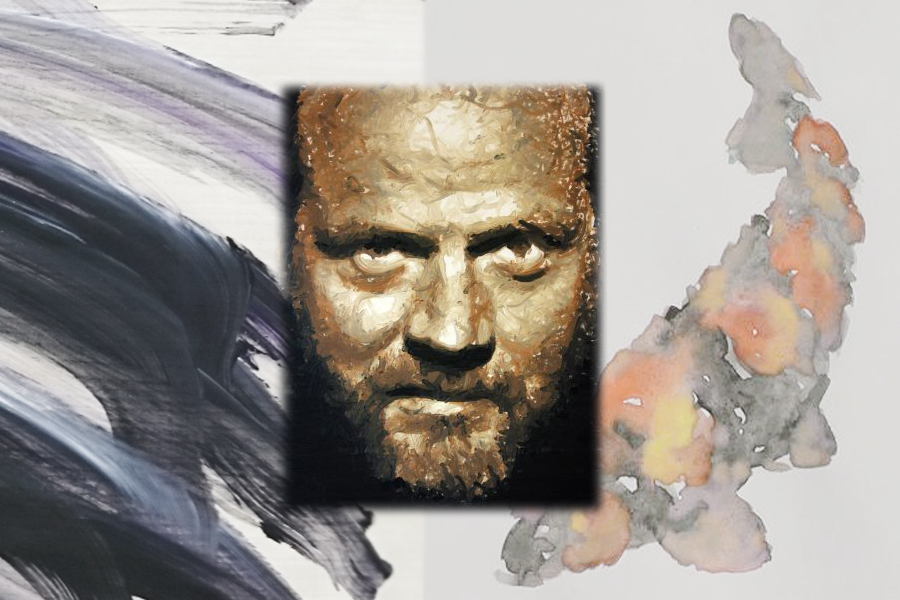
A record number of teams submitted beautiful robot-created artwork for the second year of this 5-year worldwide competition. In total, there were 38 teams from 10 countries who submitted 200 different artworks!
Winners were determined based on a combination of public voting (over 3000 people with a Facebook account), judges consisting of working artists, critics, and technologists, and by how well the team met the spirit of the competition—that is, to create something beautiful using a physical brush and robotics, and to share what they learned with others. Learn more about the goals of the contest and its rules here.
Teams are encouraged to hang on to their artwork as there will be a physical exhibition of robotic-created artwork following next year’s competition (Summer 2018). This exhibition, most likely in Seattle, WA, will showcase winners of the 2017 and 2018 competition. The goal is to test Andy Warhol’s theory that “You know it’s ART, when the check clears.”
… and now, for the team winners of the 2017 Robot Art Competition:
1st Place—$40,000—PIX18 / Creative Machines Lab—Columbia University (USA)
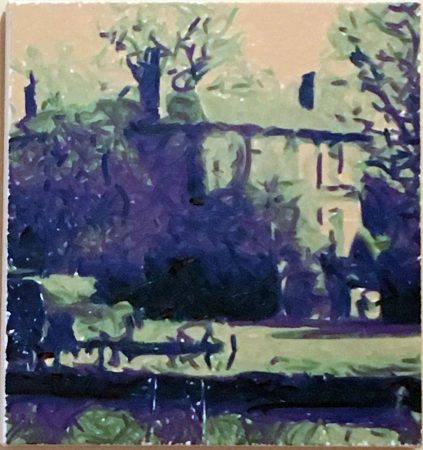
House, by PIX18 & Creative Machines Lab
This project from Columbia shows a high level of skill with brushstrokes. This, along with some deep learning algorithms, produces some lovely paintings from sources or scratch. When they used a photograph as the source they were able to create plenty of variation from the original and using a fluid medium to produce an atmospheric and open-ended visual experience. Much of their work had a painterly and contemporary presentation.
2nd Place—$25,000—CMIT ReART, Kasetsart University (Thailand)
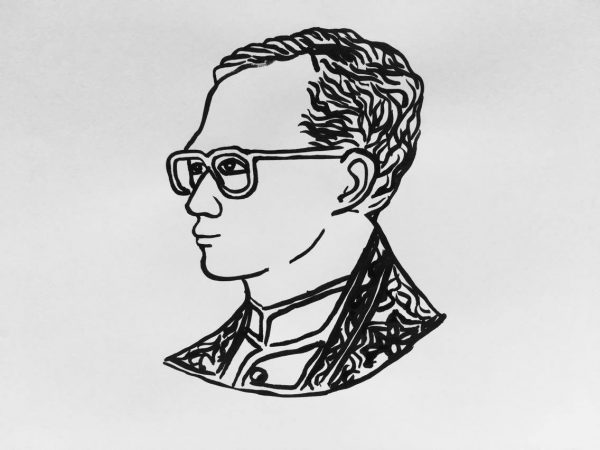
King Bhumibol Adulyadej, by CMIT ReArt
Artists program this robot brushstroke by stroke, using a haptic recording system that generates volumes of data about the position of the brush and the forces being exerted. When re-played, reART will generate a perfect reproduction of the original strokes. Haptic recording and playback allows for remarkably high-quality inkbrush drawings
One of the aspects of a success commercial artist is to know their market. In this case, the students chose to paint the popular and recently deceased Thai King and therefore were able to get many students to vote for their team.
3rd Place—$10,000—CloudPainter—Gonzaga (USA)
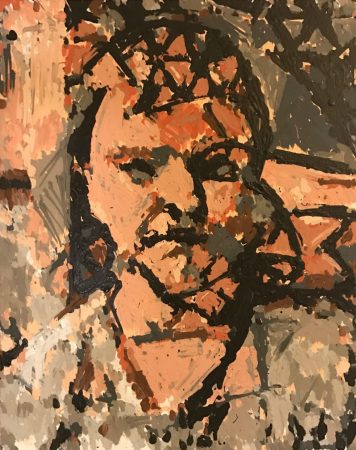
Hunter 2017 (Deep Learning Abstract Portraiture), by CloudPainter
All of this teams offerings are important. They are aiming at an interpretation of the optical properties of oil paint and applying them to deep learning. Spontaneous paint, “mosaicing” of adjacent tones, layering effects and the graphical interplay between paint strokes of varying textures, are all hand/eye, deeply neurally sophisticated aspects of oil painting that this team is trying to evince together with a robot.
This team also won the $5,000 prize for technical contribution.
4th Place $6000—e-David—University of Konstanz (Germany)
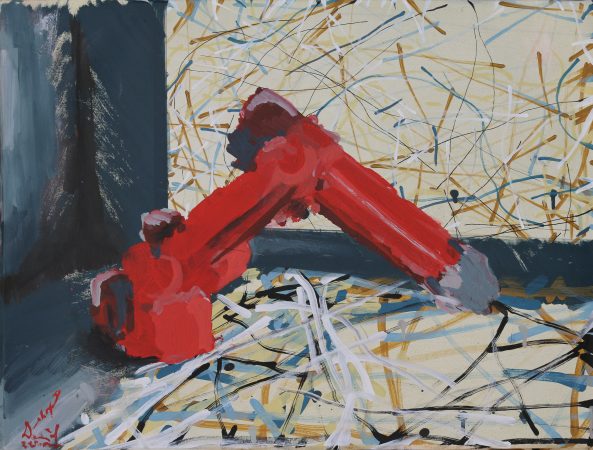
Homage to Jackson Pollock, by e-David
Using software that enables a collaboration between a human artist and roboticist, e-David mimics closely the approach a human painter would work on the canvas. An accompanying academic paper goes into deep detail about their approach to the project.
5th Place $4000—JACKbDU—New York University Shanghai (China)
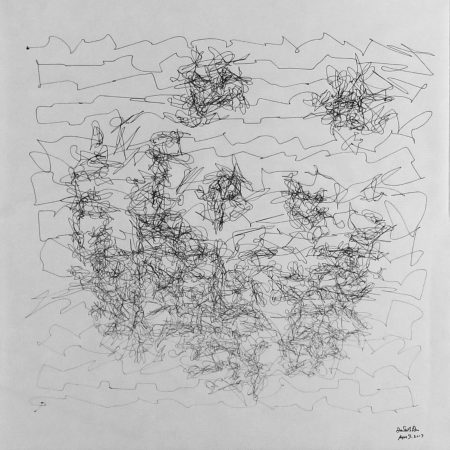
WWF, by JACKbDU
Clean lines, interesting abstractions, both familiar and abstract subjects made me appreciate the overall body. In particularly, purely from aesthetics, these were found to be most compelling.
6th Place $2000—HEARTalion—Halmstad University (Sweden)
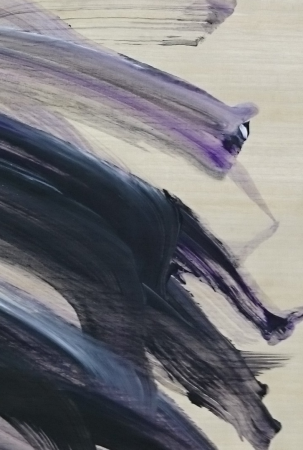
MISERABLE, by HEARTalion
If this body of work was exhibited at a gallery and I was told that the artist aimed to capture emotion through color, composition, and textures—I would buy (says one of our professional judges). The bold brush strokes, cool or warm templates to match the emotional quality expressed, all made sense—but felt alive. Loved them.
7th Place $2000—Late Night Projects—Independent
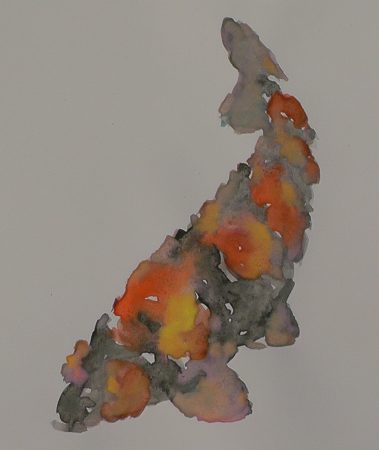
Koi: Layered Painting, by Late Night Projects
Loved the composition of both of these pieces. Both pieces bring an emotive calm with just a few colors, technique, and simplicity. Gem-style optical sketch, intimate scale, good formal balance, medium application and value panels.
8th Place $2000—Wentworth Institute of Technology (USA)
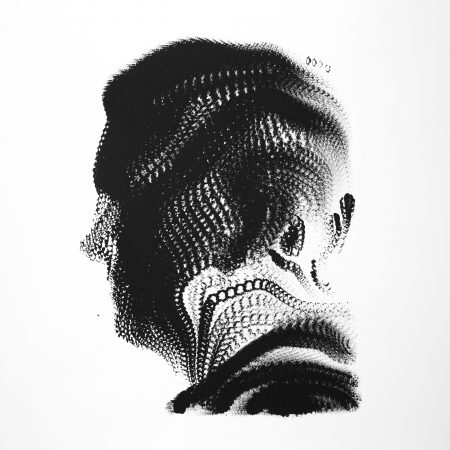
Profile 03, by Wentworth Institute of Technology
This project uses the precision of a robot to take crude brush dabs to astonishing levels. By incorporating 3d scans into its image generation, this bot operates with a complete understanding of its subject; much like a human painter would have someone sitting for them. The team was kind enough to publish their 3d models and source code, so others can learn from and build off of their work.
9th Place $2000—CARP—Worcester Polytechnic Institute (USA)
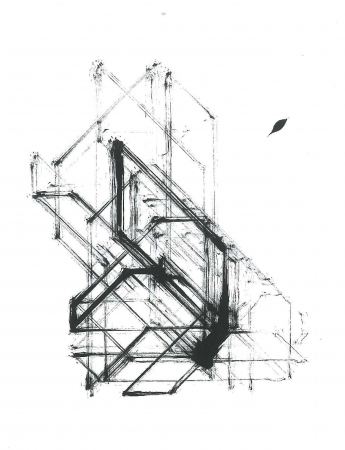
Geometry No1, by CARP
Very good line. Lots of space in this drawing and central form is simultaneously dense and traversable. Good architectural reference in clear tooling, but enlivened by sumo type or Franz Kline strokes. If the shapes can continue to be explored while maintaining the hand/machine balance, this will remain a strong venue.
Slightly synesthetic. Beautiful and balanced fusion of technical and handmade, crystalline and organic.
10th Place $2000—BABOT—Massachusetts Institute of Technology (USA)
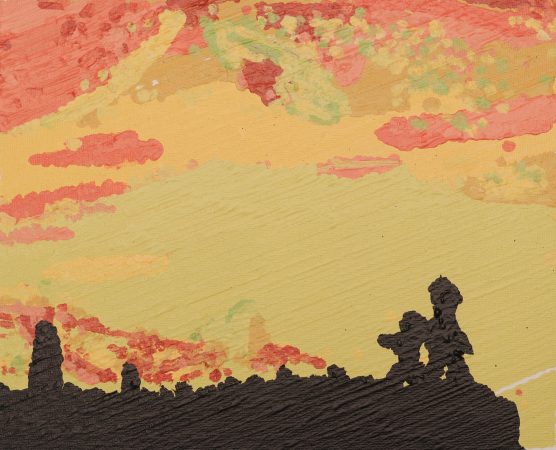
People in Space, by BABOT
MIT’s BABOT was able to produce this and other inspiring vistas.
Special recognition prizes $1000/each
Chicago Engineering Design Team – University of Illinois at Chicago (USA)
JacksonBot – University of Heidelberg (Germany)
Christian H. Seidler – The Jeffersonian Institute (USA)
Anguis – Oregon State University (USA)
Manibus Team – Ballet Des Moines (USA)
Special thanks to the judges:
Stacy Nagata, Peter Malarkey, Jonathan Zornow.
Click here to see more works of RobotArt, and to learn more about the competition.
tags: Annoincement, c-Arts-Entertainment, Competition-Challenge, Culture and Philosophy, cx-Events, cx-Research-Innovation, Robotics technology




